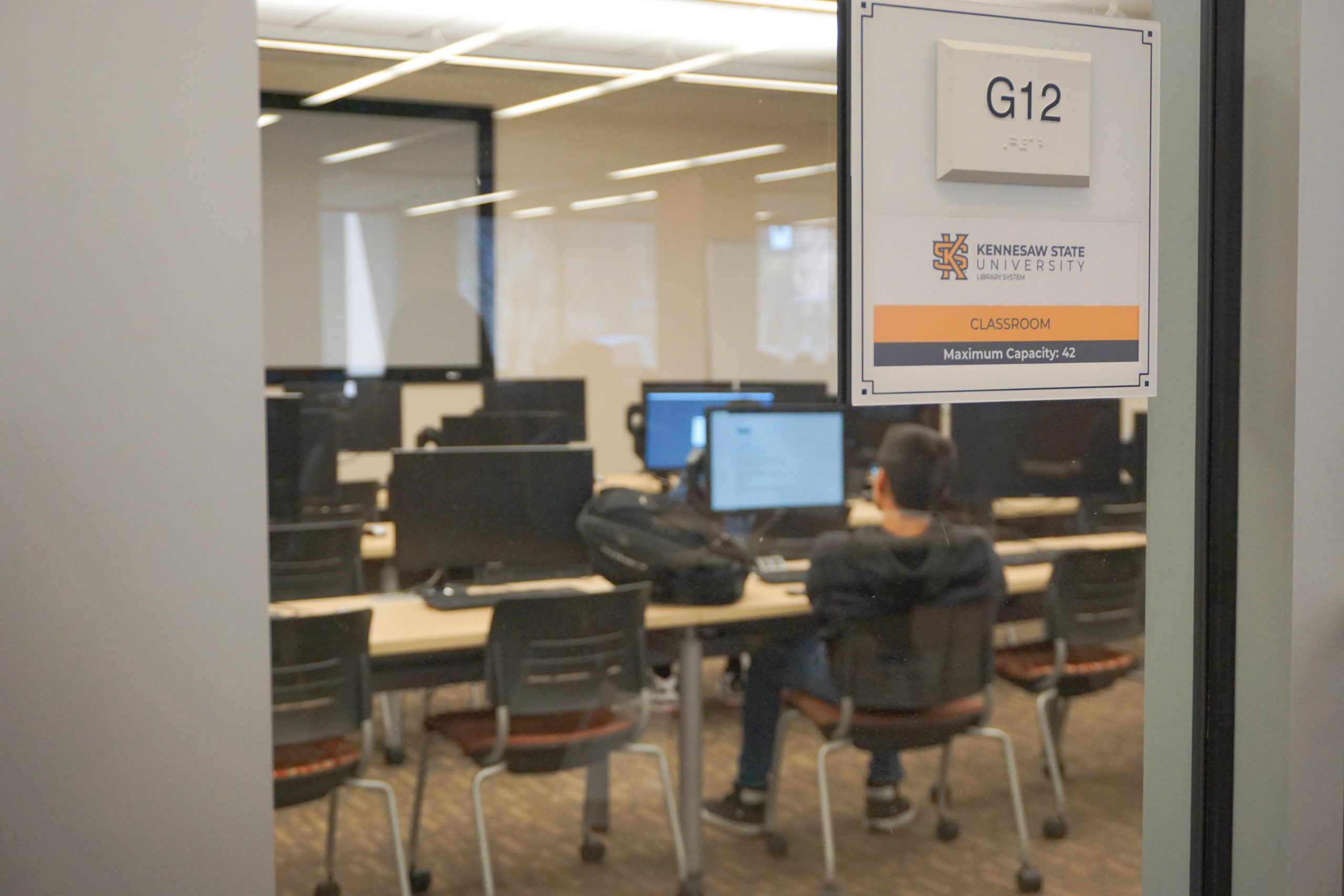Sierra Hubbard, Sentinel News Editor
To help fight the loss of learning over the break from school, a six-week summer program for low-income children is happening at Kennesaw State University’s Paulding site.
Horizons National, a community-centered program that focuses on closing the achievement gaps for underprivileged children across the country, is hosting the summer program as well as funding the first year with grant for almost $40,000 according to a press release from KSU. Fifteen students who will be first- graders in the fall were selected to participate in the program this summer.
With a community focus, many of the instructors are recent graduates of Kennesaw State University with teaching degrees or current students at Georgia Highlands College. Karen Woodlief is a local teacher from Allgood Elementary School, a Title 1 school in Dallas, and is one of the reading specialists in the program.
With fourteen of the fifteen participating students being from Allgood, the program is close to her heart.
“In the beginning, it was like pulling teeth to get the students to sit down and write a story,”Woodlief said. Now, the children are eager to create their narratives and get their ideas down on paper.
In the mornings, the students break into two groups and rotate between reading and math classes.
Dalton Lemelle, one of the math instructors, claims that they aim to teach basic math skills, like recognizing and forming numbers correctly, but they also teach practical life skills like identifying money.
“As a matter of fact, of the fifteen students, there were only two that could identify money,” Lemelle said. “Now, all fifteen can identify money. All fifteen can’t count it consistently … but we have five that consistently can.”
The instructors teach more than just academics, though; the children learn social skills as well.
“We work on teaching them how to become a team; learning how to talk to each other, communicate with each other; how to communicate with an instructor,” he said.
Horizons National tries to do more than just teaching in a classroom setting, however. The students take swimming lessons every Monday, Wednesday, and Friday as a confidence-booster. Tuesday is Bike Safety Day, and a new bicycle and helmet was purchased for each student to use during the program. The students who successfully complete the program at the end of the six weeks with good attendance are allowed to take their bikes home with them.
They go on several field trips as well to experience hands-on learning activities. The KSU Police Department recently visited with a K-9 unit for a demonstration, and local teachers often guest-star as ‘mystery readers’ to read stories to the children.
“We also did the Barnes and Noble reading program where they had to read eight books,” Karen Woodlief said. “Of course, we helped them read them, and then they had to write recommendations who they would recommend would like the book.” At the end of the program, each student got to pick out a book to take home for free.
To keep the energy up, a theme was selected and the instruction is built around it. “Our theme was, for the whole six weeks, ‘you are very special; don’t ever let anyone burst your bubble,’”Woodlief said. Most of the activities involve bubbles somehow, from blowing them and discussing new vocabulary words to describe them to writing a culminating narrative about being trapped in a giant bubble.
The small size of the program keeps the setting very personal. “There’s a good ratio,”Woodlief said. “There’s basically one of us to each three students, whereas in a classroom [it’s] 22 to 1.”
Lemelle also sees the size as an important factor in the success of the program. “Because we’re so small in numbers, we can actually spend a lot of one-on-one time to get them up to speed, to get them caught up to where they should be once they get to the first grade.”
After the six weeks, the instructors actually volunteer to act as the students’ mentors in the fall to keep up the pace, and the students come back next summer to act as the ‘leaders’ of the program when the new group of fifteen rising kindergarteners joins them.
According to the organization’s website, the first Horizons program was launched in 1964 in New Canaan, CT to serve children from low- income families in lower Fairfield County. The current Horizons National grew out of the original program’s desire to serve more children through replicating the model. It serves communities across the country through independent schools and universities to help fight the loss of learning during the summer months.



